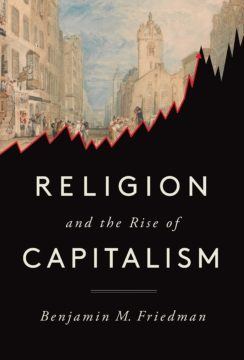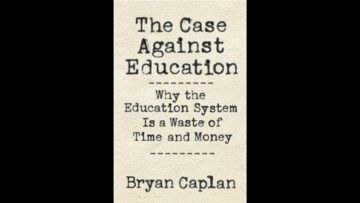by Kevin Lively
The re-election of Donald Trump has prompted a spectrum of reactions among those who are . . . unenthusiastic . . . at this outcome. One common reaction I’ve observed among progressive friends and those who enthusiastically rather than grudgingly vote Democrat is confusion. Many reactions are understandable: dread about the implications for climate change, concern for the human rights of undocumented migrants in the US, or a low-grade panic over the fact that the Supreme Court has literally vested the office with immunity against legal persecution for assassinations, although apparently Obama’s assassinations of US citizens get a pass. Confusion, however, is only explicable as a consequence of a media ecosystem which rarely manages to coherently discuss many of the serious issues in American society, and crucially the role of policy choices by the government under both Democratic and Republican leadership which either failed to address or directly exacerbated these problems.
As any very stable genius glancing at a red hat in public can tell you, the appeal which won Mr. Trump his first democratic victory is ultimately rooted in nostalgia. But nostalgia for what exactly? Was American really greater in the past than it is now? And if so what changed and why?
Well this is a layered question. There is of course the obvious fact that for a non-negligible share of Trump voters this nostalgia is rooted in a time before the Civil Rights Act extended de jure if not de facto equal rights to non-white, non-christian, non-heteronormative non-men. If nothing else one can look at the day one rescinding of Diversity, Equity, Inclusion and Accessibility programs across the federal government and its contractors as an appeasement to that crowd. However, while this discrimination is indisputably a crucial aspect of American society and will continue to severely negatively affect human rights in the US, it is also not the only reason for Trump’s election. This in evidence from the increases Trump made among non-white voters, although the total numbers are still biased towards white men.
For the moment however, I do not want focus specifically on the very important issue of racism and discrimination, and instead look to other causes for support for Trump, although the USA being what it is, it will still permeate the discussion. Let’s start with the short term. Assuming there was a modicum of greatness in Trump’s first term we can look to an April 2024 New York Times / Sienna poll for what voters remembered about 2017-2021. Read more »


 Religion has always had an uneasy relationship with money-making. A lot of religions, at least in principle, are about charity and self-improvement. Money does not directly figure in seeking either of these goals. Yet one has to contend with the stark fact that over the last 500 years or so, Europe and the United States in particular acquired wealth and enabled a rise in people’s standard of living to an extent that was unprecedented in human history. And during the same period, while religiosity in these countries varied there is no doubt, especially in Europe, that religion played a role in people’s everyday lives whose centrality would be hard to imagine today. Could the rise of religion in first Europe and then the United States somehow be connected with the rise of money and especially the free-market system that has brought not just prosperity but freedom to so many of these nations’ citizens? Benjamin Friedman who is a professor of political economy at Harvard explores this fascinating connection in his book “Religion and the Rise of Capitalism”. The book is a masterclass on understanding the improbable links between the most secular country in the world and the most economically developed one.
Religion has always had an uneasy relationship with money-making. A lot of religions, at least in principle, are about charity and self-improvement. Money does not directly figure in seeking either of these goals. Yet one has to contend with the stark fact that over the last 500 years or so, Europe and the United States in particular acquired wealth and enabled a rise in people’s standard of living to an extent that was unprecedented in human history. And during the same period, while religiosity in these countries varied there is no doubt, especially in Europe, that religion played a role in people’s everyday lives whose centrality would be hard to imagine today. Could the rise of religion in first Europe and then the United States somehow be connected with the rise of money and especially the free-market system that has brought not just prosperity but freedom to so many of these nations’ citizens? Benjamin Friedman who is a professor of political economy at Harvard explores this fascinating connection in his book “Religion and the Rise of Capitalism”. The book is a masterclass on understanding the improbable links between the most secular country in the world and the most economically developed one.
 The late economist Hyman Minsky wrote that after fortunes inflate on the back of a speculative bubble, and after investors’ irrational optimism and overvalued assets inevitably collapse, an economy enters a “period of revulsion,” when people remember that it’s risky to bet big on an uncertain future. Likewise, it’s always during the depths of a hangover that a drinker remembers how whiskey invites its own overconsumption and swears that the only way to avoid another descent into this purgatory is to never touch the stuff again. But after the fog leaves and with a clear head regained, he forgets the pain after the party and declares another Manhattan to be an eminently reasonable investment. Of course, the trick is to recall at just that moment how miserable you’ll be after another three. A pessimistic economist faces the same cyclical popularity as a tee-totaling friend; a consoling voice the morning after becomes a buzz killer as soon as night falls again.
The late economist Hyman Minsky wrote that after fortunes inflate on the back of a speculative bubble, and after investors’ irrational optimism and overvalued assets inevitably collapse, an economy enters a “period of revulsion,” when people remember that it’s risky to bet big on an uncertain future. Likewise, it’s always during the depths of a hangover that a drinker remembers how whiskey invites its own overconsumption and swears that the only way to avoid another descent into this purgatory is to never touch the stuff again. But after the fog leaves and with a clear head regained, he forgets the pain after the party and declares another Manhattan to be an eminently reasonable investment. Of course, the trick is to recall at just that moment how miserable you’ll be after another three. A pessimistic economist faces the same cyclical popularity as a tee-totaling friend; a consoling voice the morning after becomes a buzz killer as soon as night falls again.